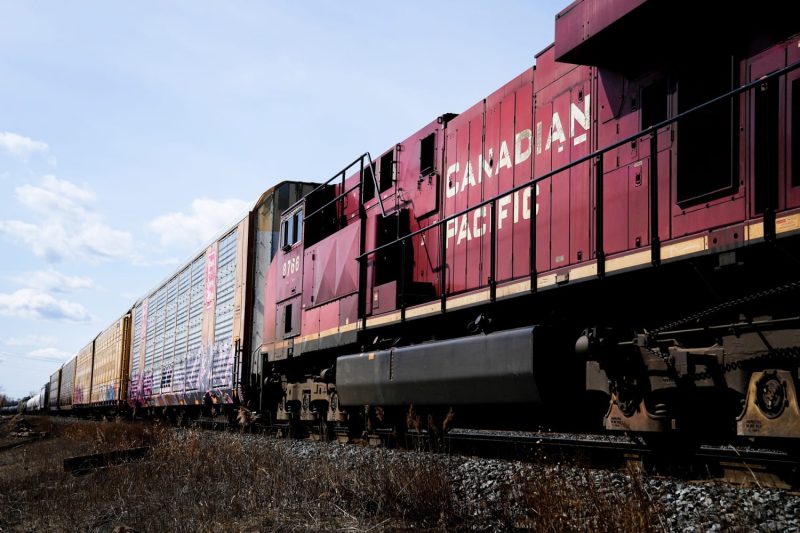The recent developments surrounding the possible work stoppage at Canada’s two largest railroads, Canadian National (CN) and Canadian Pacific (CP), have raised concerns over potential disruptions to the U.S. supply chain. The railroads play a crucial role in the transportation of goods between Canada and the United States, making any disruptions a cause for attention in both countries.
The two railroads are major arteries in North America’s transportation network, with CN operating an extensive network across Canada and into the U.S., while CP connects key Canadian cities with major U.S. markets. The threat of a work stoppage at these vital transportation links poses a significant risk to the flow of goods, impacting various industries that rely on rail transportation for their supply chain operations.
One of the primary concerns arising from a potential work stoppage is the disruption to the flow of essential goods and commodities. The railroads handle a significant portion of cross-border trade between the two countries, transporting a wide range of products, including automotive parts, agricultural commodities, and consumer goods. Any interruption in rail service could lead to delays in the delivery of these goods, affecting businesses and consumers on both sides of the border.
Moreover, the impact of a work stoppage at CN and CP could ripple through the entire supply chain, affecting industries beyond just transportation. Manufacturers, retailers, and other businesses that rely on timely delivery of goods may face production delays, inventory shortages, and increased costs as a result of disrupted rail service. This can have far-reaching consequences for the economy, potentially leading to lost revenue, job cuts, and reduced competitiveness in the global market.
In addition to the immediate economic impact, a prolonged work stoppage at the Canadian railroads could also strain diplomatic relations between Canada and the United States. The two countries have a longstanding and interconnected trade relationship, with goods flowing freely across the border to support various industries. Any disruptions to this flow of trade could create tensions and impede cooperation on other important issues.
To mitigate the potential risks associated with a work stoppage at CN and CP, stakeholders on both sides of the border must work together to find a swift resolution. This includes the railroads, labor unions, government agencies, and industry associations collaborating to address any underlying issues and prevent disruptions to the supply chain. Timely intervention and effective communication will be crucial in ensuring a smooth resolution and minimizing the impact on businesses and consumers.
In conclusion, the looming threat of a work stoppage at Canada’s two largest railroads, CN and CP, highlights the vulnerability of the North American supply chain to disruptions. The potential impact on the transportation of goods between the two countries underscores the need for proactive measures to safeguard the flow of trade and prevent economic fallout. By working together to find solutions and resolve any issues, stakeholders can help maintain the integrity of the supply chain and ensure the continued prosperity of businesses and communities on both sides of the border.

